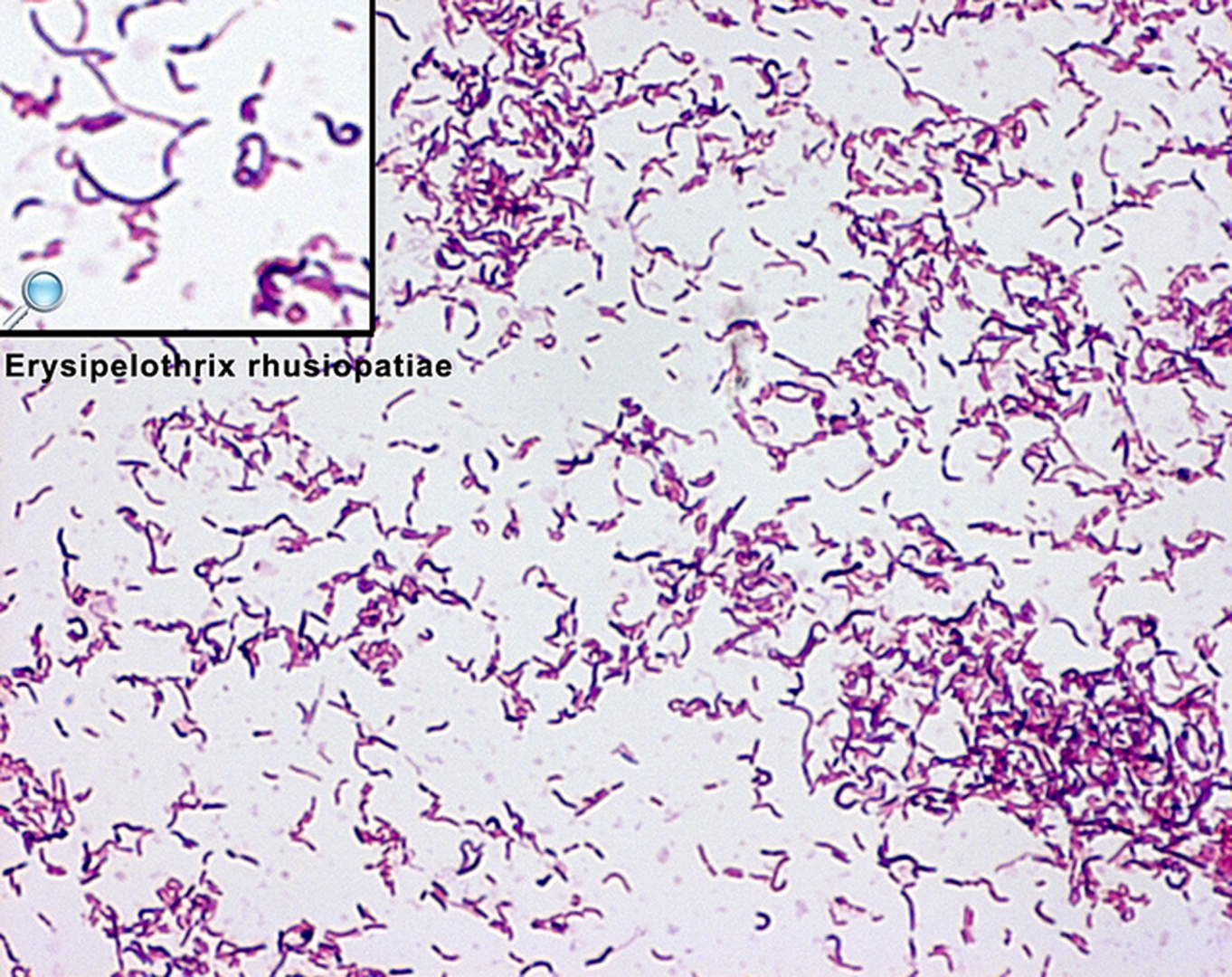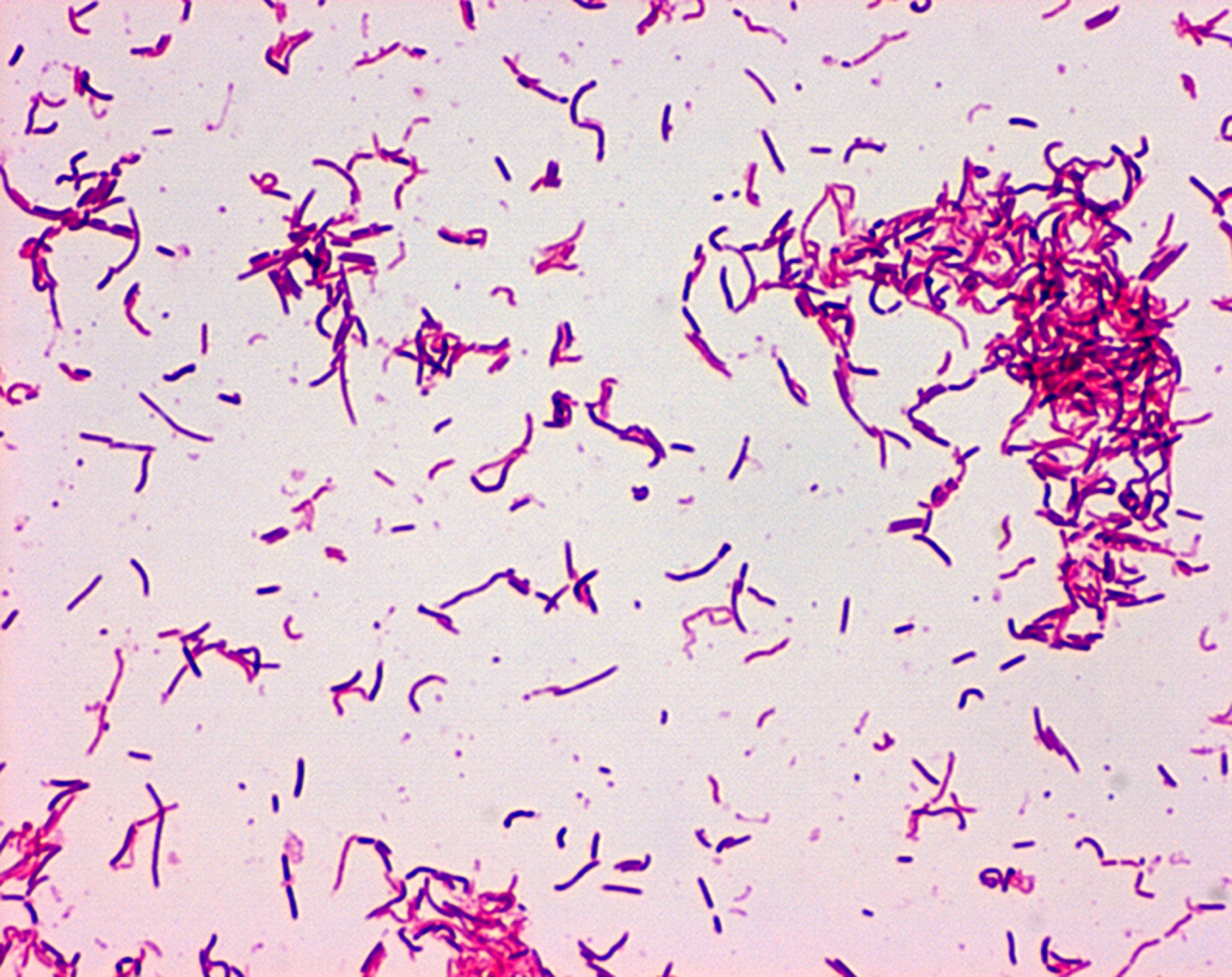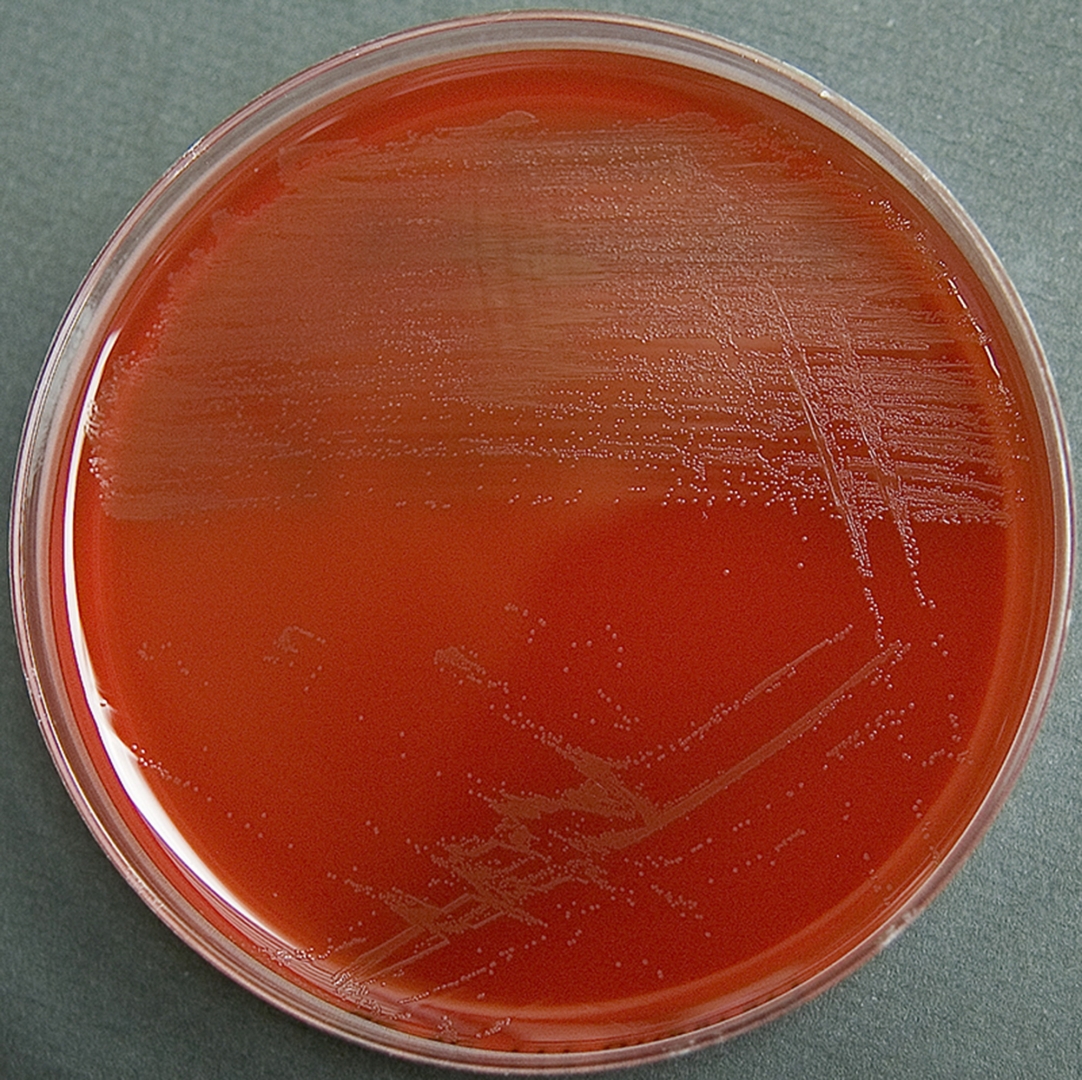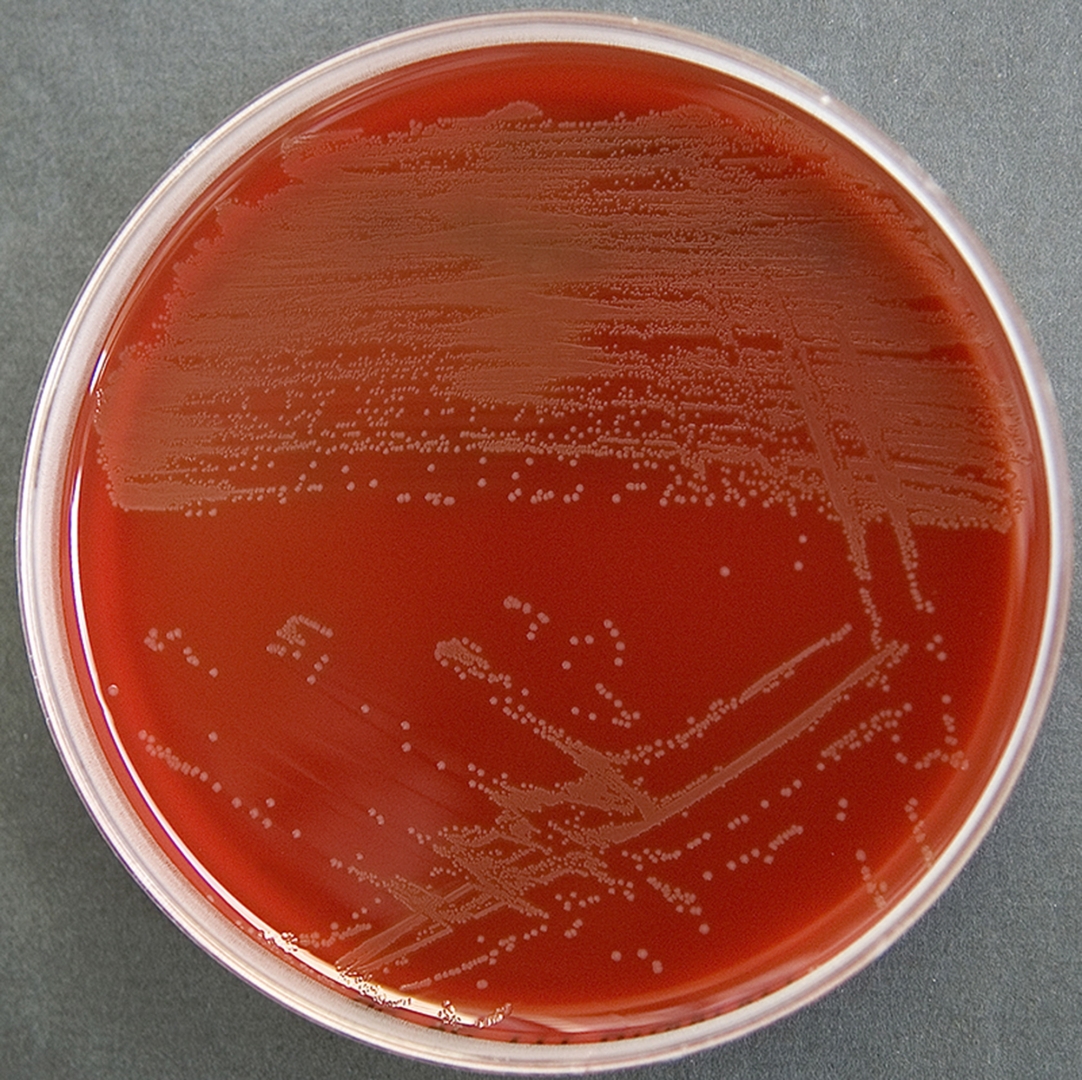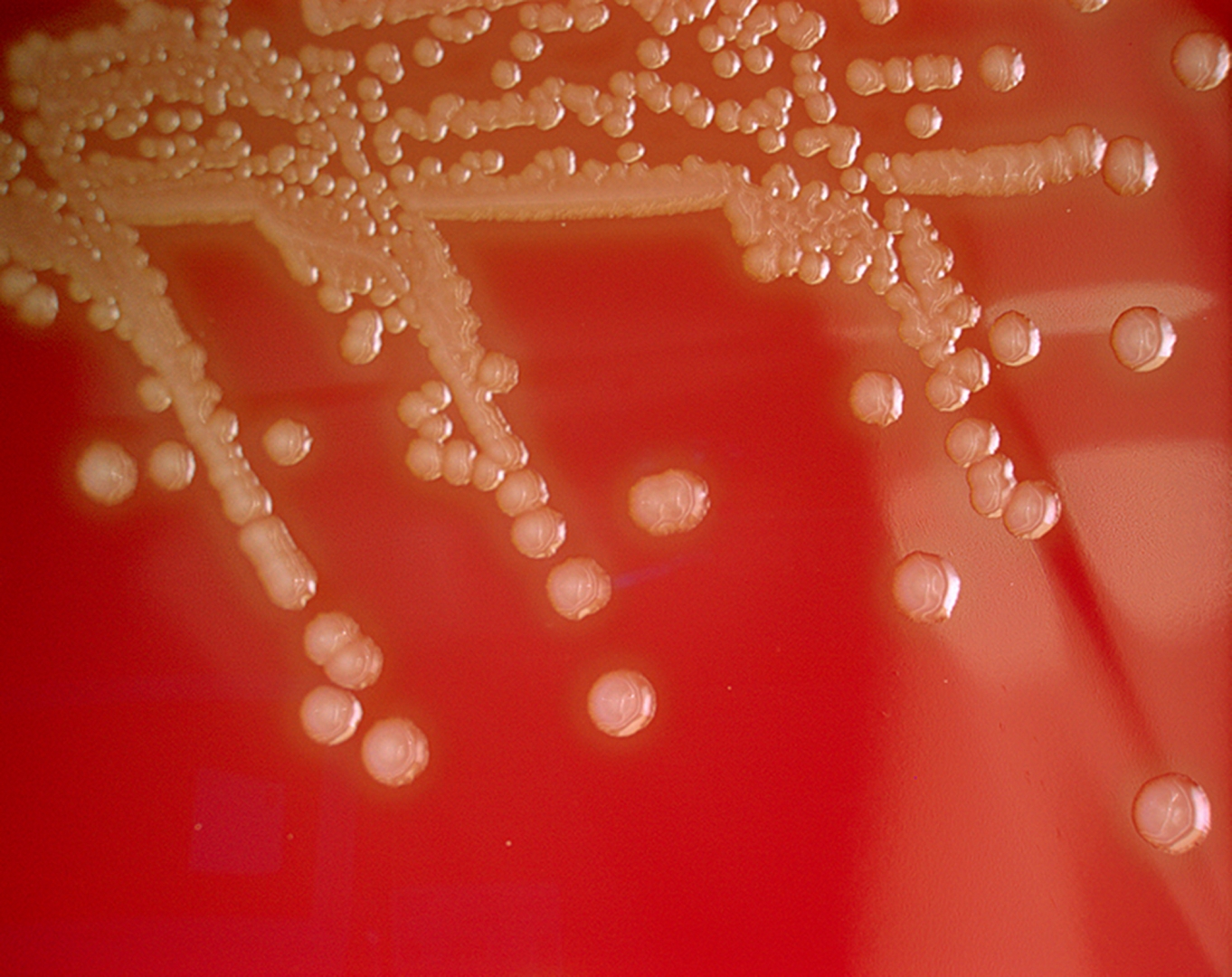♦ What is erysipeloid / fish poison?
Erysipeloid or fish poison is an infectious skin disease in humans that is usually caused by the bacterium Erysipelothrix rhusiopathiae and is usually mild.
Fish poison often occurs on the fingers when E. rhusiopathiae penetrates the skin if there is a small wound. People who work professionally with animals, meat or fish are particularly at risk.
There are three distinguishable forms:
• Local cutaneous - (erysipeloid of Rosenbach) usually on the fingers; blue-red, painful spots on the skin, sometimes presence of vesicles or bullae.
• Diffuse cutaneous - multiple purple maculae or plaques.
• Generalized - with fever, sepsis, chills, weight loss, malaise, arthritis, meningitis, endocarditis. E. rhusiopathiae can cause a slow-healing cellulitis that is more common in individuals who come into contact with fish or raw meat. E. rhusiopathiae also causes a form of erysipelas in pigs. It is common in domestic pigs and can be transmitted to people who work with pigs.
It usually gains access through abrasions in the hand. Bacteremia and endocarditis are uncommon, but can have serious consequences.
Due to the rarity of reported human cases, E. rhusiopathiae infections are often misidentified at presentation.
♦ Diagnosis
Violaceous swelling with severe pain but without pus (Which differentiates from pus forming streptococcal and staphylococcal erysipelas)
♦ Erysipeloid of Rosenbach
Erysipeloid of Rosenbach is a cutaneous condition most frequently characterized by a purplish marginated swelling on the hands.
The eponym Rosenbach's disease is in reference to the milder type of the condition and is named after Friedrich Julius Rosenbach.
♦ Treatment
Typically, a course of five days to a week is prescribed with oral penicillin or intramuscular procaine-benzylpenicillin.
Erythromycin or doxycycline can be given instead to people who are allergic to penicillin.
E. rhusiopathiae is intrinsically resistant to vancomycin
The generalized form is preferably treated with a single dose of benzathine benzylpenicillin, administered by intramuscular injection.
If not treated, erisypeloid will usually heal spontaneously within weeks to months.
To avoid complications, treatment with antibiotics is preferred.
Erysipeloid or fish poison
Related
References
Wikipedia
https://nl.wikipedia.org/wiki/Erysipelo%C3%AFd
Photo
Wikipedia
MMIZ - ErasmusMC - Rotterdam_Loes van Damme
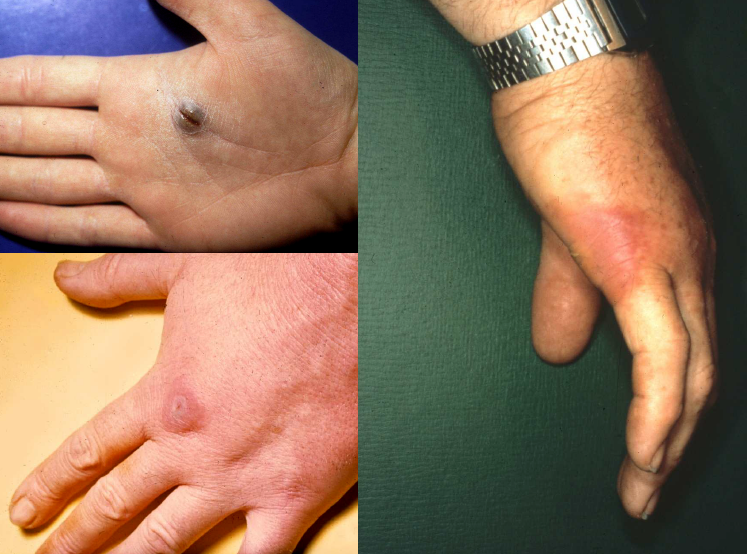
- Actinomycosis
- Anthrax
- Biopsy Sinusitis_Aspergillus flavus
- Botulism
- Brucellosis
- Cat Scratch Disease
- Cellulitis
- Cholera
- Creutzfeldt-Jakob Disease
- Cystic Fibrosis_CF
- Diphtheria
- Erysipelas
- Erysipeloid or fish poison
- Legionnaires disease
- Lemierre syndrome
- Leprosy
- Listeriosis
- Lyme / Borreliosis
- Melioidosis
- Meningitis
- Plague
- Syphilis
- Tetanus
- Trench Mouth_Plaut-Vincent_acute necrotizing ulcerative gingivitis
- Tuberculosis (TB)
- Tularemia_Rabbit Fever
- Typhoid fever (Epidemic typhus)
- Whooping Cough

